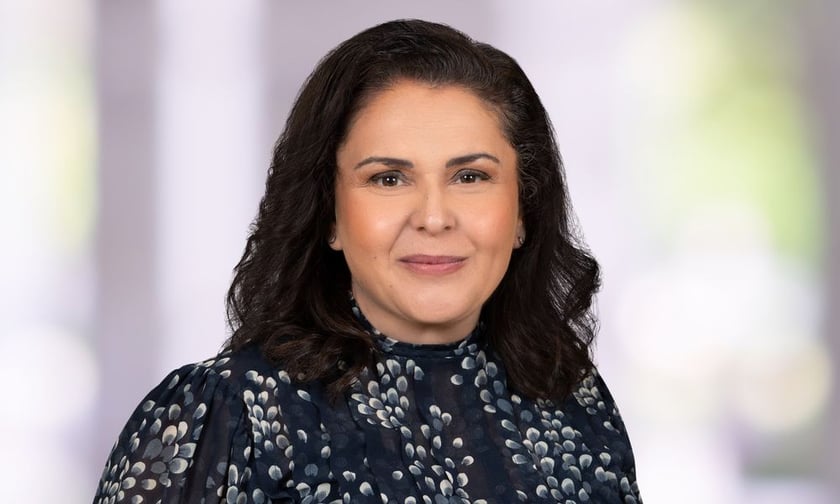

This month, the Women in Insurance Mentorship Program held its first webinar. More than 85 insurance professionals located in New Zealand and Australia attended. The webinar was hosted by Suzanne White (pictured), head of accident and health in Australia and the Pacific for Canopius Group, the sponsor of the program.
Setting up for success: How to build a great mentor relationship, focused on how to get the most out of a mentor/mentee relationship. The panel discussion, followed by questions from attendees, involved five female industry leaders from both sides of the Tasman.
White, who is Sydney-based, said that mentorship is a two-way street and the benefits can be “transformative” for both parties. The senior Canopius leader is seen by colleagues as instrumental in her firm’s own mentorship program.
She started by asking the panellists what sort of expectations mentors and mentees should have from their partnership?
“When you find a mentor it starts with ‘what do I see in this person already that I admire and what would I like to get out of it?’” said Julia Vahry, managing director of Vahry Insurance, a life and health insurance firm.
Auckland-based Vahry has an interesting back story. She said “before falling into insurance” and founding her firm in 2016 she was a police officer for nearly a decade and more recently an actor.
She said, in her experience, the best meetings with a mentor are challenging ones.
“I always liked to know that I was taking good and bad things from a meeting,” she said. “That’s gold and can progress you forward.”
Vahry also discussed the importance of honesty.
She said human beings can really struggle with “truly and deeply confronting themselves as to whether they’ve made mistakes.”
The insurance leader brought up a personal anecdote to demonstrate.
“I had a girlfriend of mine call the other week on the floor of her kitchen, in tears, going ‘I’m a failure, I’m a failure,’” she said.
Vahry said that sometimes we need to call people out on their own behaviour.
“As much as I empathised with her situation a lot of the chaos that she had welcomed into her life was through saying ‘yes’ to too many things.”
At this point, every panellist could be seen in their video square, nodding in agreement.
“I would say have somebody who confronts you, that you respect,” said Vahry.
However, friendly confrontational rather than scary confrontational, she added with a smile.
Tanya Clews, also based in Auckland, is head of claims partnerships and services for Ando Insurance Group. She gave her view on how to approach mentorships.
Clews has worked in both the UK and New Zealand industries and helped Ando as a startup nearly a decade ago.
“I think it’s around being prepared to have really open conversations,” said Clews.
She also warned that just because a mentor looks great on paper doesn’t mean you’ll necessarily be able to strike up “that true and authentic connection.”
Clews said both mentor and mentee need to be open, honest and “as specific as possible” about what the mentee wants.
“What’s the purpose? What do you want to get out of that relationship and partnership?” she said.
Clews also said it’s important to agree on the level of commitment.
“If you are both prepared to do it, how much time can you give to this?” she said.
Jenny Bax, CEO of the Underwriting Agencies Council (UAC) in Australia, talked about the influences of some of her mentors.
Sydney-based Bax has worked with major insurers and is strongly connected to the Australian and New Zealand Institute of Insurance and Finance (ANZIIF). She called her mentors “superstars.”
“I have had some amazing mentoring relationships over the years and they really have impacted me both personally and professionally,” she said.
For example, early in her career, mentors provided her with support and a basic understanding of the complexities of the industry. This was particularly helpful, said Bax, because she was a young woman working in the male-dominated rural insurance sector.
However, the main learnings from her mentors were on a more complex level.
“It was also understanding or starting to learn the perspectives that I hadn’t developed yet,” she said. “That might have been leadership, business planning, strategic thinking and even things like office dynamics.”
She said mentoring can have a “huge impact on your career and how you manage those things.”
Kama Ghosn is chief people officer with NobleOak Life, based in Sydney. She studied marketing and has moved through different industries but with a focus, she said, on performance, development and goal setting.
Ghosn recommended an open-minded approach to mentorships.
“I’ve always sought out opportunities and chances to grow and there’s a lot of taking on things before you necessarily get the recognition or the role [you want],” she said.
She suggested that while sometimes people think they need to take a direct sequence of steps to reach their chosen industry role, going sideways can actually be a positive move.
“There’s no clear path for what the right path is,” said Gossen. “Success and career satisfaction can be situational.”
She said mentors can be very helpful when you are in a work environment that’s “just not right for you.”
“Your mentor can help you helicopter up and see that,” said Ghosn.
She also said people shouldn’t sit around waiting to be called up for the next opportunity – that just doesn’t happen.
“Unless you’re very, very lucky, your career is rarely top of mind for anyone else,” said Ghosn. “The ball really is in your park to use your own initiative to find and make the most of opportunities to learn and grow.”
She said this leads to “clarity” on what career opportunity you might want to take and then “the pieces will start falling into place.”
Do you have any tips for mentors or mentees? Please share them below
